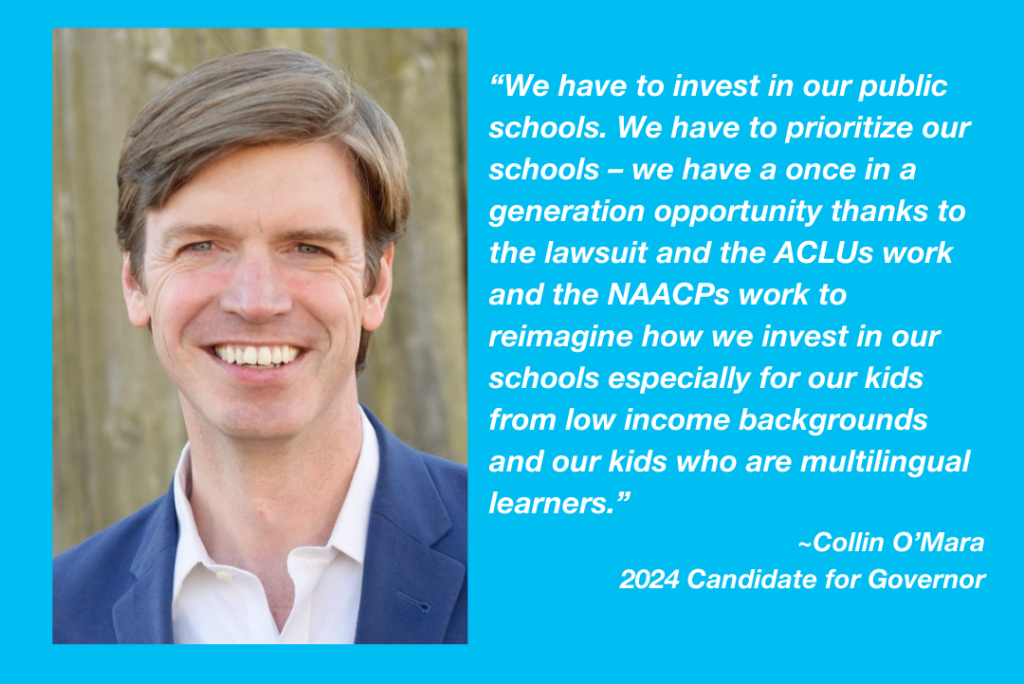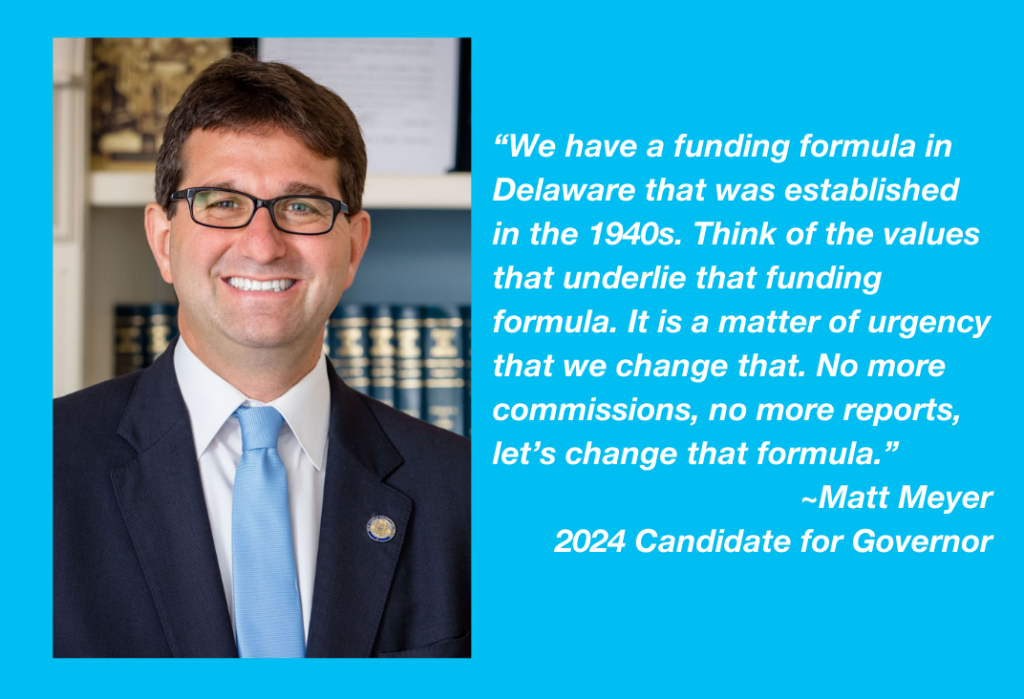Funding Commission to Set the Stage for School Finance Reform
-A newly established legislative commission will create the roadmap for large-scale funding reform in Delaware.
-The commission, comprised of legislators, experts, and community members, will build on the recommendations and financial models from the Assessment of Delaware Public School Funding.
-Delaware will look to capitalize on political momentum, other recent successful commissions, and lessons gleaned from other states.

Delaware’s longstanding quest for a more student-centered, equitable school funding system marches on. Following the release of an independent assessment of Delaware’s school funding system conducted by American Institutes for Research (AIR), the state Senate and House of Representatives education committees held a joint legislative briefing in March to dig deeper into the issue.
This month, legislators took the next step toward modernizing school funding by establishing a commission of stakeholders to draft the roadmap forward. (As we’ve written, these actions stem from the settlement of a lawsuit brought by the ACLU of Delaware and Delawareans for Educational Opportunity in 2020.) Here’s what we know about SCR 201.
What is the Public Education Funding Commission?
The new commission will bring together legislators, educators, and community members to discuss the AIR report recommendations, learn from experts, and create a roadmap for how best to implement the recommendations in a hybrid form specific to Delaware’s context. The roadmap will be created in 2025.
The commission is charged with reviewing the AIR recommendations and putting forward improvements to Delaware’s system to make it more student-based, equitable, and flexible to meet student needs. The commission is also charged with reviewing current Delaware laws and regulations to address disparities and consistency of allocation processes, and with making recommendations to the referendum process, ensuring it aligns with effort underway to update the state equalization formula.
The recommendations must ensure that no district loses funding in the effort; recent updates to teacher compensation are maintained; and stability and predictability are maintained. The commission must also hear from parents, educators and community, as well as national experts to inform their recommendations
The commission will hold their first meeting by October 1 of this year and deliver their recommendations by October of 2025.
The formation of this commission follows the recommendations of the Vision Coalition, which encouraged legislators to engage a broad range of stakeholders, look systemically, and focus on equity.
Why Another Commission? Four Reasons Why This One is Different
While a commission may not seem like the most exciting sign of progress (historically, Delaware has seen many such committees, commissions, and reports come and go without making much of a dent), the state is poised to act thanks to robust community momentum—and specific adequacy goals stated in the AIR report.
- Delaware will elect a new governor this November, and many of the leading candidates to replace Gov. John Carney are on the record showing support for school funding reform. There is clearly an appetite for wide-scale change.
- With a set of strong recommendations to work from and close collaboration with national experts who have guided other states through such efforts—Delaware will have all the ingredients it needs to design a Delaware-centric solution to a complex equity issue.
- Recently, we’ve seen similar commissions get the job done. Just last year, the Public Education Compensation Committee (or PECC, created by Senate Bill 100 of the 151st General Assembly) recommended an enhanced compensation structure for school staff, which Gov. Carney included in his FY25 draft budget.
- Transformative legislation requires legislative champions. In Delaware, strong leadership exists in both chambers—as evident from the legislative briefing held in March.
Stay tuned as we monitor the passage of this resolution, appointment of commission members, and first commission meeting.
Learning from Other States
What can Delaware learn from other states that have undergone—or are in the midst of—a similar process? Here are just a few recent examples, along with the key components of their success.
The New Hampshire Commission to Study School Funding
- Advocates in New Hampshire aligned strong champions—both within the community with inside the legislature.
- Led by the Carsey School of Public Policy at the University of New Hampshire, a strong and broad public engagement gameplan included public town halls and large-scale public surveys.
- Like Delaware, New Hampshire enlisted AIR to provide recommendations, financial data models, and other supports. Delaware is ahead in comparison since we already have the study done – but we still need work with phasing in and other aspects.
- In Massachusetts, local legislators have leaned into the issue, prioritizing it with strong political presence and support.
- In the meantime, lawmakers in Massachusetts have also committed to updating the extra funding levels (or “weights”) it provides for low-income, special education, or multilingual students—a smaller and more specific charge.
- A bipartisan effort led by advocates and the Maryland General Assembly, the Kirwan Commission is charged with broad education reform that covers almost all aspects of public education—including funding. Its policy recommendations are still in the implementation phase.
- The Kirwan commission was able to navigate the challenges of focusing on student needs while maintaining teacher salaries at a high level.
- This commission dealt with significant opposition from the governor, but advocacy efforts won over the legislature and led to successful passage.
As national observers and researchers like Bellwether Education Partners have pointed out, states have looked to the above critical ingredients (strong political champions, research, and coalitions of vocal advocates), along with game-changing litigation, as necessities for change.
What Else is Happening in Delaware in School Finance?
Property value reassessment continues to unfold through the three counties, and some results have already come in: Kent County results were released earlier this winter, while New Castle and Sussex counties are expected in 2025. Delaware property taxes contribute to local school funding, so increases here will have significant ripple effects as soon as next year’s budget.
On a parallel track, Delaware is looking to revamp its equalization formula, or the process of allocating state resources to districts inversely on their ability to raise revenues through their local property tax base. Equalization ensures that each district has the same level of resources with which to educate each student. The state will soon engage with a consulting group to jumpstart the process.
Related Topics: air report, delaware school funding, federal education funding, student success, vision coalition


